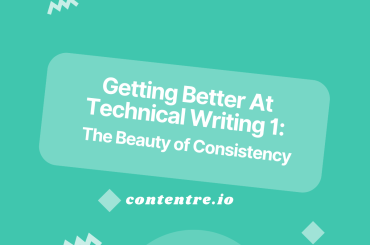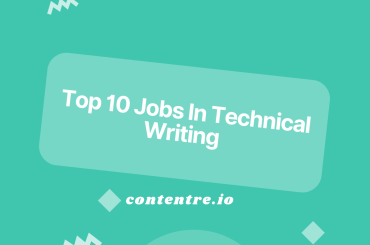Who leaves behind one of the hugest paying and most coveted roles on the planet (software development) for technical writing?
I thought Mr. Wisdom Nwokwocha, our guest, was insane until I learned he earned 10 times even more as a technical writer (making up to $6,600 monthly).
All this wasn’t without sacrifice as he battled with his fair share of life’s punches at the start of his career.
In this episode, he shows his method of snagging deals and landing big jobs in technical writing.
If you’re looking to upscale your current earnings as a freelance technical writer, you should really stick around till the end of this particular interview.
How did you start your freelance technical writing career?
“My name is Nkwocha Wisdom Maduabuchi and I’m a senior technical writer.
I started out as a web developer when I was in school and then I moved down to being a software engineer and then I started writing.
The writing was more of a natural inclination because I liked to share my knowledge through technical articles.
So when I learned about getting paid to write, I started with Upwork and then a couple of other companies I worked for as a freelancer.
Soon, writing on the side was paying me way more than my full-time job as a software developer which was really stressful, wanting to chop my neck off some time. So I had to have a rethink.
It was a bold step but I reflected on what I liked to do and I realized that I really liked to write. I was super comfortable with going to events and speaking about writing.
After realizing this, I started pursuing technical writing full-time. My main work as a software developer declined to 70% and now it’s at 10%”.
Is this what you envisioned yourself doing at any point in your life?
“Writing was never in my book, I mean I never dreamt about it and it never even crossed my mind.
I had always wanted to be a software engineer or a civil engineer, probably even a CTO. I dreamt of building software outside mobile but here I am writing articles.
Overall, I just smile at where I am at the moment even if it wasn’t the plan. The funny thing is, back then in University, I took English as a course but I didn’t like it because It wasn’t something I enjoyed, I preferred maths. Now, English is vital to me”.
What initial career path did you have in mind growing up?
“For me initially what I had in mind was more of mechanical engineering, then I grew to like electrical engineering, then petroleum engineering.
I never got to follow my dreams because of several failed attempts and I had to settle for a degree in computer science. That’s how I got into tech”.
What was your sweetest deal as a technical writer?
“This was in 2020 during the pandemic.
So, I applied for a writing role and after a long period of waiting, they sent me an email saying they were going to pay me $350 per article.
I was so overwhelmed, this was a big deal for me back then.
There was another sweet deal too but it was way more than technical writing because I had to build the documentation and also write content for them.
At the time, I was being paid $6600 per month for six months because it was a contract job. When I landed this deal, that was when I started to rethink software development.
When I was done with that project I took up another one. This one was equally a sweet deal too. They paid about $4400 per month.
With these two deals sealed, I decided it was time to wine it down on the software development and take technical writing full time. I began to learn how to do documentation by taking some courses and attending many events just to learn more about technical writing, and here I am as a full-time technical writer.
It all started with the $350 deal now is something even bigger.
Currently, if you go through my LinkedIn and Twitter, I always try to post jobs and propose meet-ups to advise people and teach them how to do documentation because it’s something I’m benefitting from”.
Could you share some of your bad experiences so far in your writing career?
“My clients have always been pleasant. I’ve never had any bad experiences with my clients”.
What are your writing weaknesses?
The problem I know I have is starting.
Especially when I don’t have a lot of information to write about, probably, I have limited resources.
I just can’t seem to start immediately when given something to write about. In other words, I struggle with putting out an introduction but every other thing is good.
Once I’m able to start, I won’t stop till the conclusion and then I go as far as building visuals to add as I’m very good in graphics and design too, so I add that”.
If you could turn back the hands of time was part of your technical career would you want to remove or add it?
Well, I would say I would have wanted to add graphics at the early stage of my writing career. If I had that skill I wouldn’t have lost two technical writing jobs, full-time and also freelance because they posted something like that but I didn’t have the skill.
If I had the skill at that period, I would have gotten the job. So for me, I wish I had it then.
After I lost this contract I added extra feathers to my wings by learning how to work with Canva, Figma, and Photoshop.
So, when I applied for jobs, I wouldn’t even wait for them to ask. I’ll say it upfront and gloat about my graphic skills. Also, I started learning other engineering skills.
So I wasn’t good with API. It’s something I would have also wanted to add earlier.
Another horrible mistake I made was working without tools like Grammarly.
I used to write with a dictionary by my side but that was very stressful. When I found out about Grammarly, it was a game changer for me. I was able to submit quality content without grammatical errors.
How would you manage negative critique?
I know I have gotten a lot of negative critiques and it’s normal so long as you’re a human being.
If I get one I will always learn from it or I’ll bring up some arguments when I have a stronger argument because sometimes someone may decide on something but may not be right necessarily.
So to better understand if this is the case, we’ll set up a meeting where I lay all the cards down and the client also gets to explain their displeasure and we’ll both reach an agreement.
So what would you like to say to writers out there?
“Always try to have some writing tools to help you write so you don’t submit your first draft with grammatical blunders. Use Grammarly or Quillbot.
Secondly, have a very good cover letter when you are preparing for freelancing jobs because that would help you a lot.
Make sure your cover letter has detailed information about your skills, your samples, your projects, and your social media handles (LinkedIn majorly). You should have your LinkedIn well optimized.
And as a technical writer, it’s always good to have basic programming skills.
Next, when you have gotten the job, always try to have a to-do list like me. I have a to-do list written with a pen and paper because it helps me to keep on my toes and it helps me to be more productive.
When you don’t have a to-do list you probably can’t track things you have done, things you haven’t done, and things you should take over to the next day to do.
In technical writing, you have a lot and as a junior technical writer you need to know about technical writing tools and during the interview, you can point them out to the interviewer. Point out your programming skills and communication skills as well”.
So how do you present your portfolio to clients?
“For me, portfolios are not really my thing. I just send my samples across to clients. I sent my samples, a cover letter, submit and that’s it.
So with that, most of them come back to me.
I don’t really have a portfolio like a designed website. If I want to show a client a sample, I must copy links and send them to the client. Is there anywhere that I can arrange my portfolio?
Well yes, Contentre is a great portfolio site that helps you arrange your work into categories and subjects and you’ll be able to present separate links for each category depending on the asking client.
Contentre helps technical writers stay organized and gain more clients. Grow your technical writing career in one place.
Now that you’re here, let me briefly recap the most important features Contentre can offer you:
- Organize your content in categories, topics, and tags
- Create and manage multiple clients
- Create and manage multiple personalized portfolios
- Get statistical analytics of your content revenue, top categories, and tags.








1 Comment
Thank you very much for sharing, I learned a lot from your article. Very cool. Thanks.